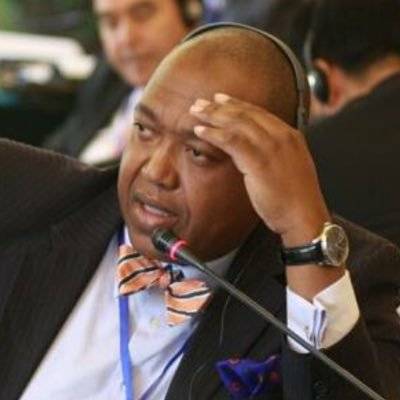The fight for Mosul has raised additional concerns and diverted attention from the Syrian conflict and the fighting in Aleppo, which US Secretary of State John Kerry described as possibly amounting to “war crimes.” The world’s concentration is now fixated on another immediate problem which is to drive Daesh out of Mosul. There is a bigger concern for many people in Mosul and indeed the region – what will happen when the dust settles in Mosul?
Most of the turmoil in the region can be attributed to carelessness and lack of post-conflict planning. This carelessness has led to political chaos and the worst human suffering in living memory. The signs are clear – Daesh will not survive the might of the US-led coalition forces in Mosul.
According to Peshmerga General Bahram Yasin, there was an estimated 20,000 Daesh fighters in Mosul last month. The latest reports suggest that the number of Daesh fighters has reduced to about 6,000 fighters. Michael Knights of the Institute for Near East Policy and an expert on the Iraqi military told Vox online that there are 44,000 Iraqi forces, 4,000 Peshmerga fighters and 2,000 to 4,000 Shia militiamen fighting around Mosul. Combined with the number of coalition forces and their military land and air support, the numbers are just too staggering for Daesh to defeat.
Watch: Videos emerge of Iraqi abuses of children
The involvement in this battle of, amongst others, Kurdish Peshmerga, Iraqi government forces and Turkey has introduced additional political complications in the region. Turkey’s rationale for getting involved in this latest battle is for the protection of the Sunni Arabs and Turkmen in the city. Mosul was part of the Ottoman Empire until its collapse in 1920.
Notwithstanding what is being said by Turkey, this battle is more than just what has been officially announced by Ankara. Turkey wants to be part of post-Daesh negotiations in Mosul. It will never allow the Peshmerga and the Iraqi government to determine the future of Mosul without its involvement. Turkey will do whatever it takes to halt the expansionist aspirations of the Kurds in the region. The map of what the Kurds hope will be a future “Greater Kurdistan” spreads across northern Iraq, where Mosul is situated, all the way to northwestern Syria and southeastern Turkey.
This means that Mosul is strategic in preventing the progression of the Greater Kurdistan dream. The victory of the Peshmerga in Mosul will likely consolidate its territory and bring closer the realisation of Greater Kurdistan, but the presence of the Sunni Arabs of Mosul will benefit Turkey in hampering the creation of a Greater Kurdistan. The Sunni Arabs in Mosul will also serve as a buffer between Turkey and Erbil, the current capital of Iraqi Kurdistan.
So, to answer the question of what will happen when the dust settles in Mosul here are some of the possible scenarios. First, when Iraqi forces and the Peshmerga finally drive Daesh forces out of Mosul – which is a matter of when and not if – they will have to deal with the Sunni leadership in Mosul. The Sunni leadership will not allow the return of the domination of the Iraqi government to Mosul, and they are most likely to look towards Turkey for future political direction.
The Iraqi government has said it will take charge of Mosul as it is a part of Iraq, but that scenario will take Mosul back to another conflict. The Iraqi government under Prime Minister Nouri Al-Maliki failed the Sunni population of Iraq. Previously, US officials called Maliki’s tenure as prime minister of Iraq as a disaster. The Sunnis felt totally alienated under Al-Maliki’s government. Peter Beinart wrote in The Atlantic that “in the run-up to his 2010 re-election bid, Maliki’s Electoral Commission disqualified more than 500, mostly Sunni, candidates on charges that they had ties to Saddam Hussein’s Baath Party.”
A few weeks ago, on 5 October, pro-government Sunni tribal fighters were killed near Qayarrah, 30 kilometres south of Mosul. These incidences have led to a high level of mistrust in the Iraqi government in most Sunni territories in Iraq, particularly Mosul.
Second, the Peshmerga are not involved in this battle only to secure their borders as has been repeatedly reported. Until Kurdish aspirations for a Greater Kurdistan change, it will be difficult to take for granted that Peshmerga forces are only involved in Mosul to secure their own borders. Sunni Arab tribesmen are aware of these Kurdish aspirations and the possibilities of allowing the Kurds to realise their ambitions are very remote given their closeness with Turkey. Therefore, looking at all the scenarios, it is difficult to anticipate peace and political stability after the dust settles in Mosul.
Read: The world must act now to save Mosul from being another Aleppo
The views expressed in this article belong to the author and do not necessarily reflect the editorial policy of Middle East Monitor.

![Iraqi army forces arrive in Hut village as smoke rises from oil wells, set on fire by Daesh to limit coalition forces pilots' line-of-sight, near Mosul in Iraq on October 18, 2016 [Feriq Fereç / Anadolu Agency]](https://i0.wp.com/www.middleeastmonitor.com/wp-content/uploads/2016/10/20161018_2_19639702_15153172-e1476968140637.jpg?fit=920%2C613&ssl=1)







